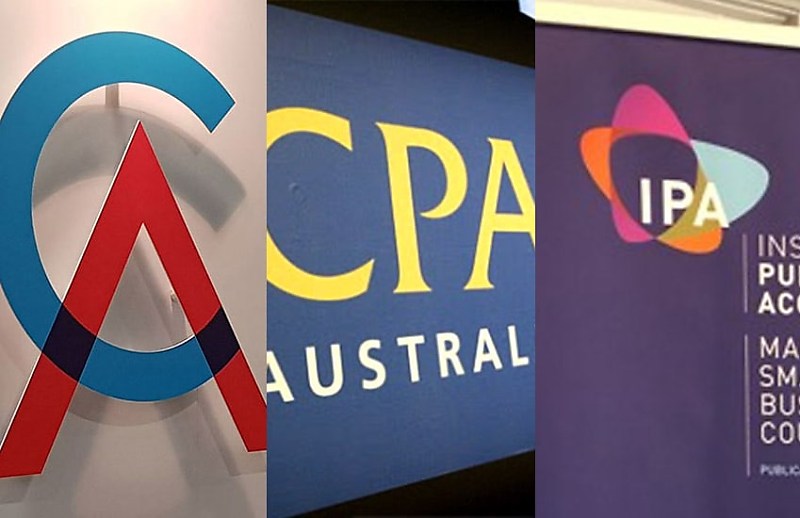Joint bodies fight for crucial changes to $3m super tax bill
SuperIndustry associations continue their push for amendments to be made to the $3 million super tax bill after independent members introduced proposed amendments to the bill.

The Joint Associations Working Group (JAWG) is calling for critical amendments to be made to the Better Targeted Superannuation Concessions and Other Measures Bill in order to prevent unintended consequences and unfair outcomes for small businesses, consumers, and advisers.
Schedules one to three to the bill and the imposition bill are designed to reduce the tax concessions available to individuals with a total superannuation balance exceeding $3 million.
JAWG, which consists of major accounting bodies and advice associations, has been calling for the government to address four critical issues before the bill is legislated.
The joint bodies have previously expressed concerns about the taxation of unrealised capital gains under the measure due to the proposed calculation for the new tax and the absence of indexation.
“The calculations in the schedules will see tax levied on the increase in the capital value of an asset, as well as actual taxable earnings. Capital Gains Tax will also be levied when the assets are sold,” JAWG said in a recent statement.
The joint bodies have also warned that the absence of indexation for the $3 million threshold will lead to generational inequity and unnecessary uncertainty for the superannuation system.
The JAWG is also concerned about a lack of clarity on the proposed treatment of members in defined benefit funds and the impact of material increases to liquidity requirements for funds holding large and unlisted assets such as family farms and business real property.
Independent MPs Kylea Tink and Allegra Spender recently introduced proposed amendments to the bill in order to address some of the major issues raised by industry including the taxation of unrealised capital gains.
The group of associations said applying rates on capital gains, both notional and realised, is unnecessarily confusing and complicated.
“The JAWG has broad industry concerns about the consequences of this approach, including both the impact on small business and primary producers who hold their small business premise and primary production land in an SMSF, and the constraints of applying these provisions in large funds,” it said in its statement.
“The JAWG notes there are other ways of reducing the tax concessions available to individuals with large superannuation balances that do not involve taxing unrealised capital gains.”
The associations are calling for the removal of schedules one to three from the bill to enable more holistic consultation on measures that achieve the government’s objective of achieving greater equity and which are consistent with existing taxation principles.
ATO statistics indicate that over $90 billion of commercial property is held by SMSFs, which includes mainly small-business premises and production land, the joint bodies said.
“Including unrealised capital gains in the calculation of earnings is likely to cause liquidity stress for many individuals and business entities impacted by this tax,” the JAWG said.
“The University of Adelaide estimates that had this tax been introduced in the 2021 and 2022 financial years, over 13 per cent of impacted members would have experienced liquidity stress in meeting the new tax obligations.”
The bodies warned that some small-business owners will be forced to sell their business premises to save their business.
“Selling such assets is typically associated with substantial transaction costs and market timing considerations that are likely to further exacerbate potential losses and introduce other investment risks,” it said.
“The treatment of unrealised capital gains and carried forward losses in the schedules presents substantial challenges given the nature of capital markets. It is not uncommon to see several bull market years followed by a sharp market decline.
“This means many members will effectively be cumulatively taxed on investments that make an overall loss when eventually sold without any real recourse to recover the tax already paid.”
Including unrealised capital gains in the calculation of earnings means an individual’s year-on-year tax liability will be directly related to the performance of investment markets, adding to the unpredictability and making liquidity management extremely difficult, JAWG said.
The JAWG said that the root cause of these issues is the departure of the use of actual taxable earnings as the basis for calculating “earnings”.
“Including unearned income in the calculation immediately gives rise to unintended consequences and inequitable outcomes,” it said.
“The JAWG acknowledges the constraints and limitations faced by some funds in tracking actual taxable earnings allocated to a member. However, one alternative could be the use of an earnings rate that is a close proxy for actual taxable earnings.”
The 90-day bank bill rate is used in other areas of the superannuation legislation to approximate earnings, it said.
The joint bodies also want to see the indexation of the $3 million threshold by average wage increases to ensure it retains its relative value, in order to ensure stability and equity in the superannuation system.
“Leaving the cap unindexed would mean over 500,000 current taxpayers would be adversely affected by the time they retire, or over six times current Government’s estimate,” the JAWG said.
“Further, a 30-year-old today will have a real cap of around $1 million in today’s dollars.”




